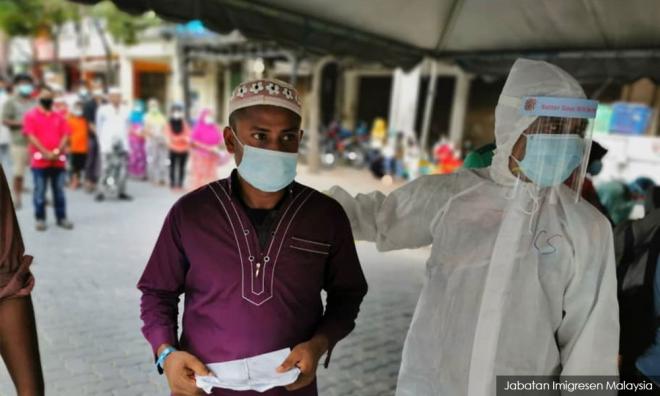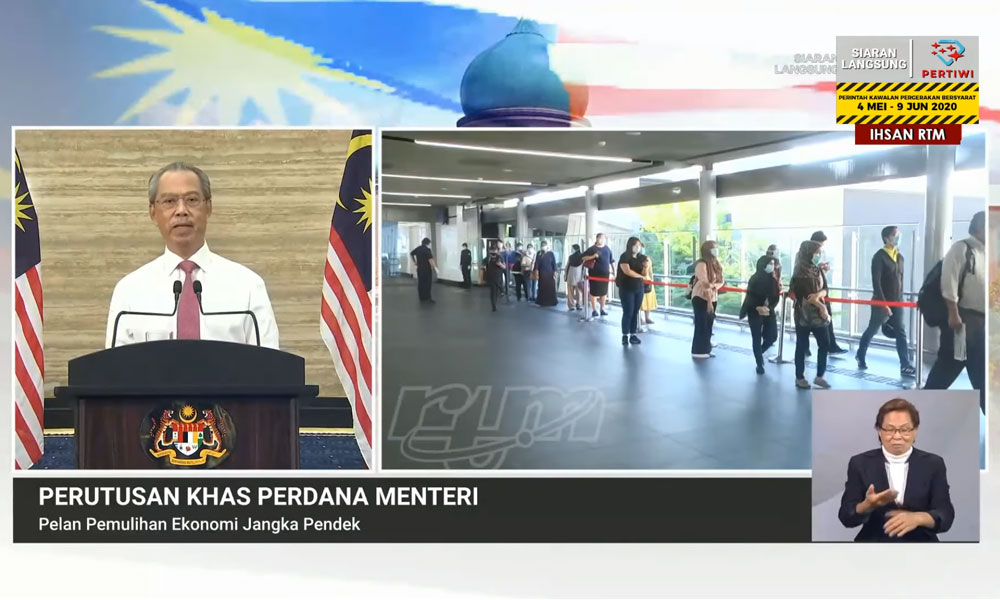
MP SPEAKS | On Sept 1, Senior Minister (Security Cluster) Ismail Sabri Yaakob announced a total ban on citizens from India, Indonesia and the Philippines from entering Malaysia.
Yesterday, on Thursday, Sept 3, he announced that this ban will be extended to countries with more than 150,000 total Covid-19 cases, including the United States, the United Kingdom, Brazil, France, Spain, Italy, Saudi Arabia, Russia and Bangladesh.
This ban, which was announced to start on Sept 7, 2020, includes citizens from these countries who are Permanent Residents in Malaysia, those who hold Malaysia My Second Home (MM2H) status, expatriates with valid work permits in Malaysia and including those with Professional Visitors Passes (PVP), those with residential passes, spouses of Malaysians who hold spouse visas and students who have valid student visas to study in Malaysia.
Instead of this blanket ban, we should strengthen our standard operating procedures (SOPs) on foreigners travelling from red zones into Malaysia and ensure that they go through a proper quarantine process.
There are currently 23 countries that have more than 150,000 recorded Covid-19 cases. While securing our borders to prevent unexpected increases in the number of Covid-19 cases is of utmost importance, the threshold of 150,000 cases seems arbitrary.
It doesn’t take into account the number of recovered cases and also active cases in a country. It doesn’t take into account Covid-19 trends in a country that may be increasing or decreasing. It doesn’t take into account that passport holders from these 23 countries may not have been staying in their home countries but in countries with less than 150,000 recorded cases. It also doesn’t take into account foreign nationals who are not from one of the 23 countries but may have spent some time recently in one of these 23 countries.
Economic reasons to reconsider blanket ban
At the time of this statement of mine, there has been no official press statement or circular from the Ministry of Foreign Affairs or the National Security Council (NSC) to explain the policies with regard to this blanket ban, more than two days after this policy was announced. This shows that the announcement of this policy was not well thought through and not well coordinated among the various ministries in the government.
There are humanitarian reasons why this blanket ban should be reconsidered. For example, there are many foreign nationals from these 23 countries who are working and living in Malaysia with valid work permits and residency documents. They may have children and spouses who are currently overseas. Having this blanket ban means that these families would be separated, indefinitely, until this ban is lifted or reviewed.

There are also economic reasons why this blanket ban should be reconsidered. Malaysia has done well in keeping the number of Covid-19 cases and deaths at a low level over the past months.

Prime Minister Muhyiddin Yassin has said that the Malaysian economy remains competitive and open for business. In June 2020, he also announced a number of investment incentives under the Penjana economic recovery package.
Many ongoing foreign direct investment (FDI) projects will be negatively affected by this blanket ban, which includes countries such as the United States, France, Germany, the UK and India, which are high FDI countries of destination for investments in Malaysia. Foreign professionals and expatriates will also not be able to come to Malaysia to finish setting up manufacturing facilities and to oversee the running of these operations.
New FDI opportunities would also be prevented from taking place if high-level executives from these countries are not allowed to enter Malaysia to evaluate the possibility of setting up manufacturing facilities, shared service centres of excellence and data centres in Malaysia, just to name a few examples.
Even citizens with passports from one of these 23 countries, who may be working from their regional headquarters in Singapore, Hong Kong, Japan or China, all of which have less than 150,000 cases, would also be prevented from entering Malaysia.
Please note that I am not calling for all citizens from these 23 countries to be allowed to travel to Malaysia. Instead, I am calling for the strengthening of our own SOPs if transmissions from countries in ‘red zones’ are a concern. For example, any foreign national with valid documents to enter Malaysia but is travelling from a red zone area or country should be required to take a Covid-19 test before entering Malaysia.
And he or she should undergo the proper quarantine process of 14 days (or more) and be verified as Covid-19 free before being allowed to work and live among the population here.
Our policy response towards the Covid-19 pandemic should be based on facts and proper data and should be explained clearly. By doing this, we can protect our borders, ensure that families are not inhumanely separated and increase Malaysia’s economic competitiveness.
ONG KIAN MING is Bangi MP and assistant political education director of the DAP. - Mkini
The views expressed here are those of the author/contributor and do not necessarily represent the views of MMKtT.


No comments:
Post a Comment
Note: Only a member of this blog may post a comment.